Top 10 Nutrient-Dense Foods to Include in Your Diet

Nourishing your body through healthy eating with the right foods is the foundation of a healthy lifestyle. While counting calories is advised to be a part of the equation, I prefer focusing on the addition of the most nutrient-dense foods as a far more effective strategy for achieving better health and fitness. These powerhouse ingredients are packed with vitamins, minerals, protein, healthy fats, and fiber in every bite. This keeps you energized, satisfied, and supports your body’s optimal functioning.
Your health and vitality depend on eating nutrient-dense foods. You can prepare delicious and nutritious meals that fuel your body and nourish your mind with a little planning and creativity. First, let’s talk about the importance of nutrient-rich foods before we get to the top 10 super-nutrient foods.
How Do Nutrient-Dense Foods Contribute to Health?
A super nutrient-dense food is like an energy-producing machine for your body. They pack a powerful punch of essential vitamins, minerals, fiber, and heart healthy fats into every bite. These superstar ingredients keep you energized throughout the day, support a strong immune system to fight off illness, and promote healthy cell function. Think of them as building blocks for your body, ensuring everything runs smoothly from your heart and brain to your muscles and digestion. Nutrition-dense foods improve your overall health and well-being, so you can live a fulfilling and active life!
Now let’s look at the top 10 nutrient-rich foods you should include in your diet. See some tasty ways to incorporate each food into your meals, as well as some surprising high-calorie and low-calorie options.
How Do Nutrient-Dense Foods Contribute to Health?
A super nutrient-dense food is like an energy-producing machine for your body. They pack a powerful punch of essential vitamins, minerals, fiber, and healthy fats into every bite. These superstar ingredients keep you energized throughout the day, support a strong immune system to fight off illness, and promote healthy cell function. Think of them as building blocks for your body, ensuring everything runs smoothly from your heart and brain to your muscles and digestion. Nutrition-dense foods improve your overall health and well-being, so you can live a fulfilling and active life!
Now let’s look at the top 10 nutrient-rich foods you should include in your diet. See some tasty ways to incorporate each food into your meals, as well as some surprising high-calorie and low-calorie options.
1. Leafy Green Vegetables
Leafy green vegetables are the undeniable champions of nutrient abundance. They’re low in calories and a good source of essential vitamins like A, C, and K, along with folate, fiber, and minerals like iron and calcium. Think kale, spinach, Swiss chard, arugula, and iceberg lettuce. These versatile greens can be enjoyed raw in salads, lightly pan-fried, incorporated into smoothies, or even baked into healthy chips.
2. Berries
These vibrant fruits are a treasure house of antioxidants, which protect your cells from damage and may reduce the risk of chronic diseases. Berries are also an excellent source of fiber, vitamin C, and manganese. Get your hands on blueberries, raspberries, strawberries, blackberries, and goji berries. These are a sweet and healthy snack or a delicious addition to chia seed pudding, overnight oats, and Greek yogurt.
3. Fatty Fish
Fatty oily fish like salmon, mackerel, and tuna are loaded with omega-3 fatty acids, essential fats your body can’t produce on its own. Omega-3s are crucial for brain health, heart health, and reducing inflammation. Fatty fish also provides a source of vitamin D and protein. Enjoy grilled, baked, or canned fish with cucumber chips for a satisfying and nutritious meal.
4. Eggs
Eggs are a nutritional powerhouse, often called “nature’s multivitamin.” They’re a complete protein source, meaning they contain all nine essential amino acids your body needs. Also, eggs are also rich in calcium, which is good for your brain, and vitamin B12, which supports energy production and nervous system health. You can have eggs for breakfast, lunch, or dinner – scrambled, boiled, poached, or even omelets filled with your favorite vegetables. Although many people limit their egg intake due to their saturated fat content and cholesterol concerns, newer research shares a different message:
“For many people, moderate egg consumption is permissible and possibly even beneficial as part of an otherwise healthy diet. However, hyper-responders and people with high cholesterol or dyslipidemia may benefit from limiting their egg consumption or removing eggs from the diet altogether, as this can lead to a clinically meaningful decrease in LDL-C.”
5. Nuts and Seeds
Healthy fats, protein, fiber, vitamins, and minerals can be found in nuts and seeds. Nuts such as almonds, walnuts, cashews, chia seeds, flaxseeds, and pumpkin seeds make excellent choices. I love utilizing a variety of nut butters in my smoothies and on protein pancakes. But, these little crunchies can be eaten as a snack, sprinkled on salads or yogurt, or even incorporated into homemade granola bars and trail mix.
6. Sweet Potatoes
A sweet potato is a complex carbohydrate, which means it provides sustained energy and keeps you feeling full for longer periods of time than lower fiber carbohydrates do. They’re an excellent source of beta-carotene, which converts to vitamin A in the body, and are also rich in vitamin C, potassium, and fiber. You can roast, mash, or bake sweet potatoes – they’re a tasty and versatile side dish that can take on a sweet or savory flavor.
7. Greek Yogurt
Greek yogurt is a creamy, thick yogurt that can be used to enhance the taste and texture of various foods. It can be used in both sweet and savory dishes! Additionally, it can boost bone health, build muscle mass, and lower the risk of certain health problems.
Compared to regular yogurt, Greek yogurt packs more protein per serving. Aside from its nutritional value, it also contains calcium, potassium, and probiotics, which promote gut health. For a tasty snack or breakfast parfait, choose plain Greek yogurt and add berries with a sprinkle of cinnamon and hemp seeds.
8. Broccoli
This cabbage-like vegetable is nutritionally dense. Broccoli is packed with vitamin C, fiber, and important antioxidants that may reduce the risk of certain cancers. Hence, you can steam, roast, or even riced broccoli as a lower carbohydrate alternative to white rice.
9. Quinoa
Quinoa is a complete protein grain, with all nine essential amino acids. It also contains fiber, iron, magnesium, and phosphorus. A great variety of dishes can be prepared with this versatile grain, from savory salads to flavorful bowls and even breakfast porridges can be made with it.
10. Lentils
There is no doubt that lentils are a budget-friendly superfood. They’re an excellent source of plant-based protein, fiber, iron, folate, and potassium. Lentils are incredibly versatile and can be enjoyed in soups, sauces, salads, or even veggie burgers.
11. Brown Rice
You might be surprised to see brown rice on this list, but it’s a great alternative to add to meals in place of white rice and white bread, as a great provision of whole grains and 3.5 grams of fiber per cup. 1 cup of brown rice is also an excellent source of magnesium, providing 84 mg which is more than you find in a serving of most leading electrolytes.
13. Chicken Breasts
Although commonly utilizing for weight loss since they are low in calories and great sources of protein, chicken breasts are a versatile option and lately I’ve been throwing them in my crockpot to then shred for multiple protein sources throughout the week for taco salads, enchilada bakes and spaghetti squash casseroles.
14. Baked Potatoes
Whoever started the hate on potato was sorely mistaken; these spuds are full of nutrients and so versatile in their deliciousness! One 5 oz potato provides over 4 grams of fiber. Plus, baked potatoes, sliced thinly and roasted in your air fryer is the perfect option to incorporate instead of potato chips!
High-Calorie vs. Low-Calorie Nutrient-Dense Foods
The majority of nutrient-dense foods are naturally low in calories, making them ideal foods for naturally creating a calorie deficit. But, some also contain a higher density of calories. However, this does not lessen their importance in your diet; rather, it simply means that you may need to adjust the portion size according to your specific nutritional requirements. This is where a dietitian can be very helpful to create a meal guide for you! And, these foods naturally support fullness in smaller amounts, to ensure your body feels satisfied by a smaller amount.
Below is a breakdown of both high-calorie and low-calorie nutrient-dense foods:
High-Calorie Nutrient-Dense Foods:
- Avocados
- Nuts and Seeds
- Nut Butter
- Fatty Fish
- Oil
Low-Calorie Nutrient-Dense Foods:
- Leafy Green Vegetables
- Non-Starchy Vegetables
- Berries
Building a Balanced Diet with Nutrient-Dense Foods
After you have become familiar with some of the top nutrient-dense foods, how can you include them into your diet in order to achieve optimal health? The following tips may be useful:
- Focus on variety: Include a variety of nutrient-dense foods from all food groups every day. It’s the best way to make sure you’re getting enough vitamins, minerals, and other stuff. Slightly tweak your grocery list each week to add something new in the mix. Usually buy rice, try polenta! Love broccoli? Get cauliflower.
- Meal planning: Plan your meals and snacks in advance to make healthy choices and avoid the unnecessary intake of fast food. Every meal and snack should have nutrient-dense options.
- Read food labels: Pay attention to serving sizes and nutrition labels to be wary of added sugar, artificial flavors and dyes and sugar alcohols. This can help you make better choices and ensure you’re getting the most nutrients for your calorie intake.
- Cook more at home: When you cook at home, you have control over the ingredients and portions. Thus, it is easier to incorporate nutrient-dense foods into your diet and customize your meals to suit your dietary needs.
- Don’t be afraid to experiment: There are endless ways to add nutritious diet foods to your dietary plan. Explore different recipes, cuisines, and cooking techniques to keep your meals interesting and enjoyable. I love adding a good sauce for more flavor!
Whitness Nutrition: Your Partner for a Healthy Lifestyle
I’m a registered dietitian and certified nutritionist at Whitness Nutrition. Passionate about the health benefits of a balanced diet containing nutrient-dense foods, I can help you add these extremely nutrient-dense superfoods into the basis of a personalized diet program.
Furthermore, as a nutrition coach, I can help you create a diet meal plan incorporating these powerful foods according to your individual goals and preferences. And, ensure that you have nutrition confidence in the basics like meal prep, reading a nutrition facts labels, and making suitable portion and food choices for your dietary goals! Make an appointment with Whitness Nutrition today! I can help you achieve your health goals and help you live an active and fulfilling life.
Final Thoughts
The journey towards a healthier, more energetic life starts with what you put on your plate. By prioritizing high-nutrient foods, you’re providing your body with the essential building blocks it needs to thrive. These powerhouses don’t just fill you up; they nourish your cells, support your immune system, and promote proper functioning of all your bodily systems.
Take care of yourself and invest in your health. Let Whitness Nutrition be your partner on the path to a healthy, happy, and prosperous life!
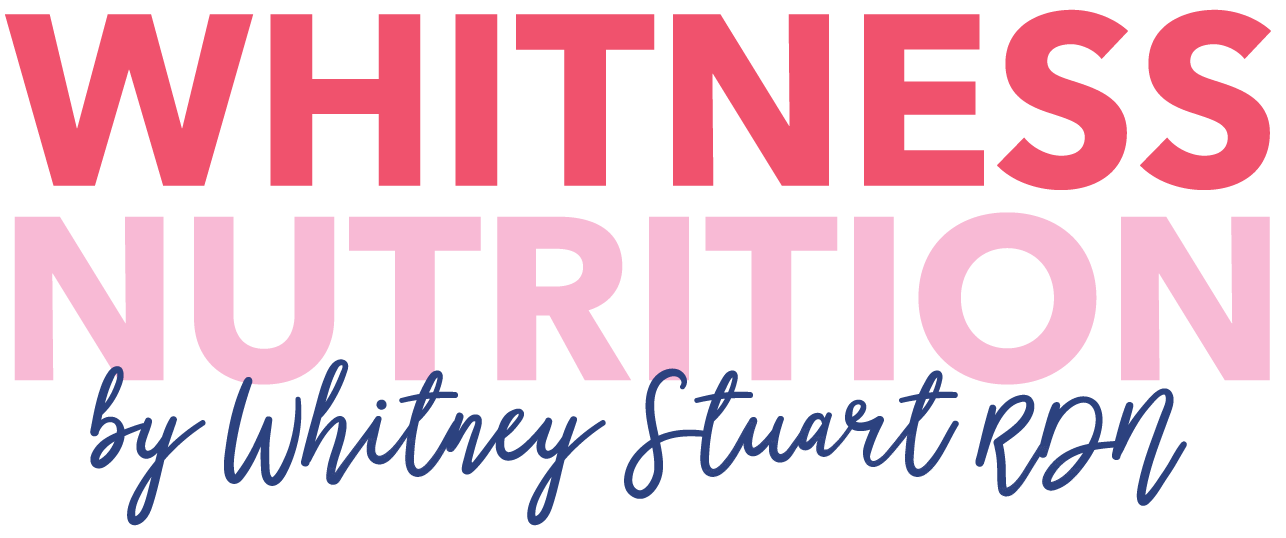
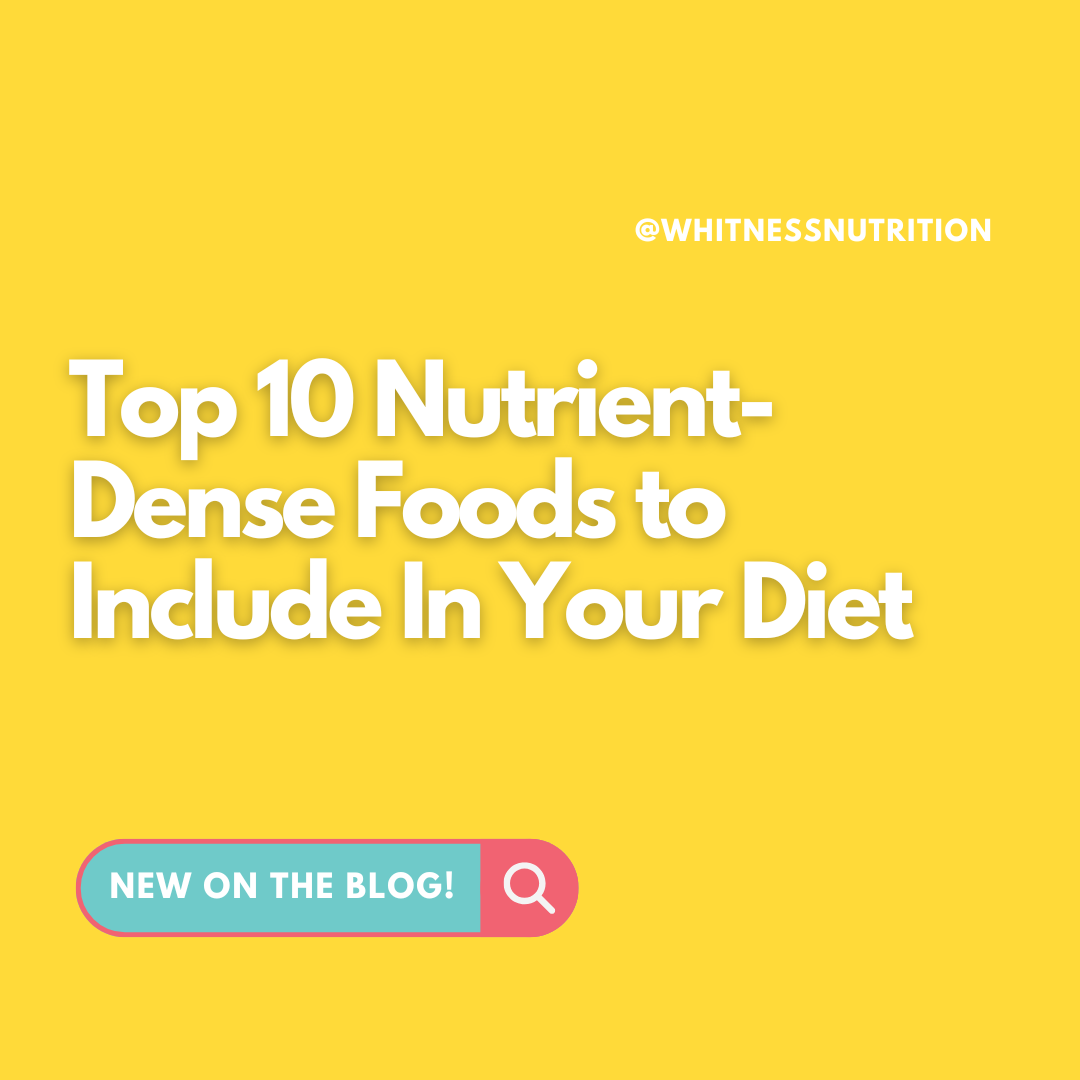
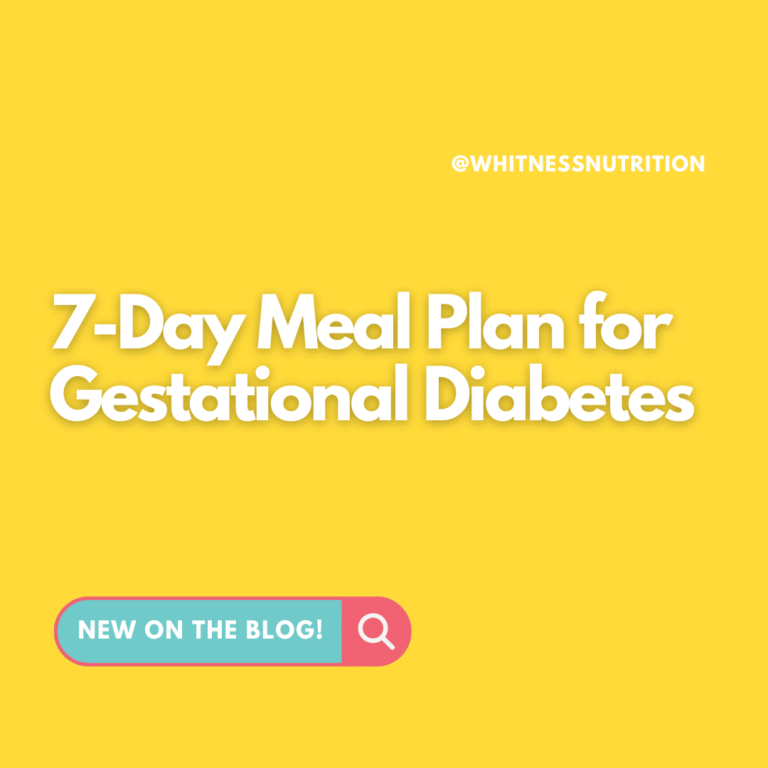
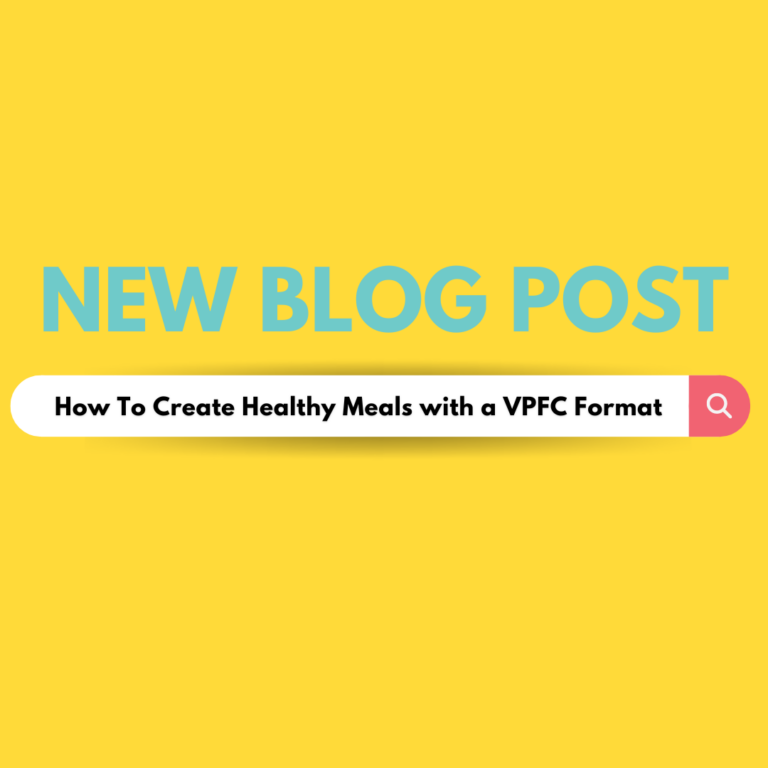
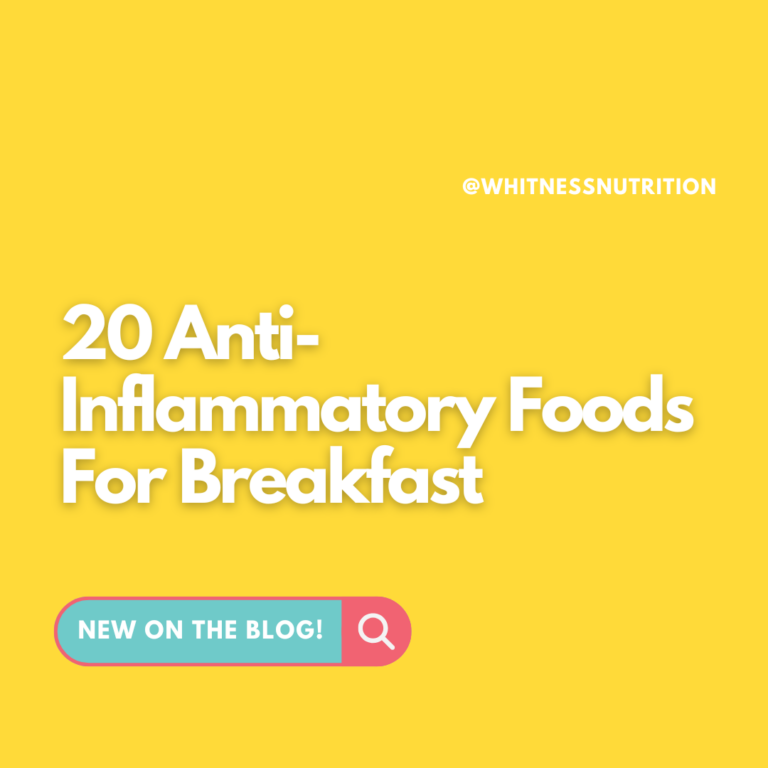


Nice Post on “nutri-balanced diet” , Waiting for the next post. Thank you.